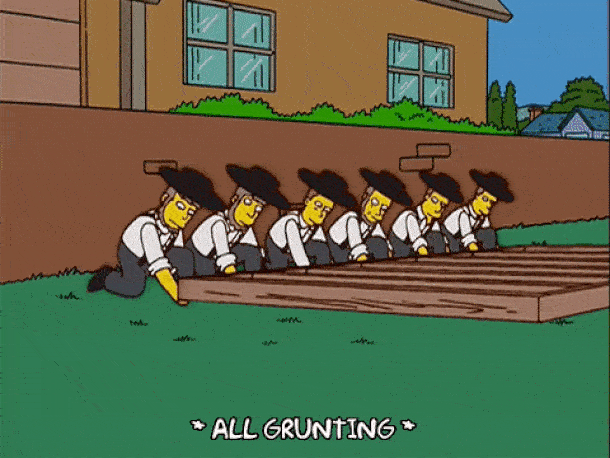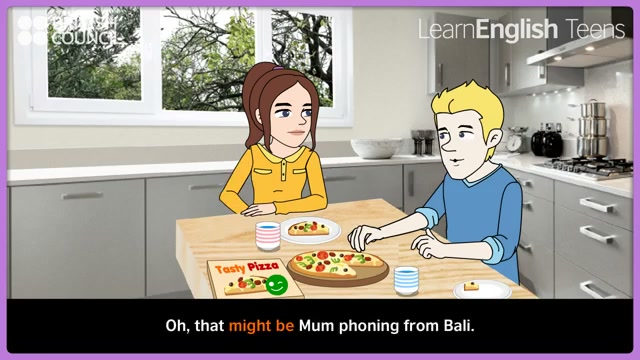( Hoy teníamos el examen pero ¡¡¡os habéis librado!! (puedo ver vuestras sonrisas pillines).
En la sesión de hoy, tenéis que trabajar las páginas 56 y 57 (WRITING A BLOG)
- Page 56: Primero leemos el text "Inner-city Fam Girl" y después hacemos los exercises1, 2 y 3.
- Page 57:Vamos a diferenciar los formal and informal texts, ya hemos trabajado en ello en otros temas, pero lo vamos a repasar y vamos a hacer los exercises4, 5 and 6.
Cuando termines mándame un mail y comprobarás si tenías bien los ejercicios. Si tienes alguna duda al realizarlos, mándame un mail y resolveremos cualquier duda.
- Page57: Vamos a prepararnos para el "Writing"haciendo elexercise 7, cuando termines el paso e, me mandas tu writing.
----------------------------------------------------------------------------------------------------------
Miércoles: Wednesday, 18th March, 2020
Miércoles: Wednesday, 18th March, 2020
(la siguiente sesión sería el miércoles porque como ya sabes los martes es el único día que no tenemos clases juntos)
En la sesión de hoy, tenéis que trabajar las pages 58 , 59 and 60. We start a new unit!!!!! "Community Spirit".


Hay que hacer los exercises 1, 2, 3 and 4 ( en el 4 como no lo podemos hacer por parejas, contesta solo tu parte)
Recuerda que tienes que copiar el vocabulario de la page 58 exercise 1 en la parte de VOCABULARY y poner su significado.
Page 60: do exercises 1 and 2.
Page 60: do exercises 1 and 2.
Now, before doing exercise 3, pay attention:
Cuando termines mándame un mail y comprobarás si tenías bien los ejercicios. Si tienes alguna duda al realizarlos, mándame un mail y resolveremos cualquier duda.
--------------------------------------------------------------------------------------------------------
Jueves/ Thursday, 19th March, 2020
Page 61: GRAMMAR
ACTIVITY 1. Read the theory and then copy it in your notebook /Primero lee la teoría y después no olvides copiarla en tu notebook.

ACTIVITY 3. Follow the link and click on the words to put them in the correct order/ sigue el enlace y clicka en las palabras para ordenarlas:
https://elt.oup.com/student/result/engint/a_grammar/unit01/1b_2?cc=global&selLanguage=en
ACTIVITY 4. Read the theory and then copy it in your notebook /Primero lee la teoría y después no olvides copiarla en tu notebook.
ACTIVITY 5. Follow the link and choose the correct options to complete the questions about the underlined words. Some of the questions are subject questions and questions with preposition.
https://www.test-english.com/grammar-points/a2/subject-questions-questions-preposition/
ACTIVITY 6. Read the theory and then copy it in your notebook /Primero lee la teoría y después no olvides copiarla en tu notebook.
THEORY: QUESTION TAGS
En inglés es frecuente terminar las frases con otra frase corta, de signo contrario, la cual tiene la intención de pedir la opinión o buscar la aprobación del interlocutor: son las llamadas question tags (preguntas coletillas). Estas frases equivalen a: ¿verdad?, ¿no es verdad?, ¿no?, ¿no es así? ¿en serio?
ACTIVITY 6. Follow the link and write the question tag, the check your answers by clicking on "Resolver".
https://www.curso-ingles.com/practicar/ejercicios/question-tags
---------------------------------------------------------------------------------------------------------
Viernes/ Friday, 19th March, 2020
PAGE 62. BE POLITE! (SÉ EDUCADO )
ACTIVITY 1. Do exercise 1 page 62, then copy the VOCABULARY.
ACTIVITY 2. Watch the following video and read the THEORY:
(sólo leer, no hace falta que copiéis)
After certain verbs we use the -ing form, and after other verbs we use the infinitive. Sometimes we can use either form and there is no change in meaning. Occasionally we can use either form and there is a change in meaning.
ACTIVITY 3. Click on the following Pdfs and do the exersises (You can download the file and add it to your notebook) Realiza las tareas del siguiente Pdf ( si quieres puedes descargarlo y añadirlo a tu notebook)
 Verb + -ing or verb + infinitive - exercises
Verb + -ing or verb + infinitive - exercises
ACTIVITY 4. Check your answers:
----------------------------------------------------------------------------------------------------------
Lunes/ Monday, 23rd of March, 2020
ACTIVITY 1. Copy and study the following phrasal verbs:


Click on the following entry and do the activities, so you can get the ready for creating your TRAVEL BROCHURE.
https://mercedesenglishclassbachillerato.blogspot.com/search/label/PROJECT%3A%20Travel%20Brochure
Podéis enviarme vuestro folleto por email si lo vais a hacer por ordenador o una foto si vais a hacerlo físicamnete (por ejemplo con una cartulina)
Examples:



-----------------------------------------------------------------------
Monday, 30th March, 2020

Today we are going to learn about :


ACTIVITY 3. FOLLOW THE LINK AND CHOOSE THE CORRECT MODAL VERB. THEN CHECK AT THE BOTTOM IF YOU ARE RIGHT BY CLICKING ON SCORE OR ANSWERS. Sigue el link y haz el ejercicio, escoge el modal correcto. Después comprueba tu puntuación (score) o haz click en "see answers" para comprobar las respuestas al final de la página web.
https://elt.oup.com/student/result/engint/a_grammar/unit07/7c_1?cc=global&selLanguage=en
ACTIVITY 4. Do exercise 5 page 67.

------------------------------------------------------------------------------------------------------------
Friday,3rd April, 2020


Actually and Currently
Vamos a clarificar /Let´s shed some light on the matter and start with the difference between Actually and Currently.
Actually = in reality = de hecho/en realidad
e.g - You like eggs, right? - Te gustan los huevos, no?
- No, actually I'm allergic to them. - No, de hecho soy alérgico a ellos.
Currently= now = actualmente
e.g - Currently, I´m learning English. - Actualmente estoy aprendiendo inglés.
- Mike´s currently unemployed . – Mike está desempleado actualmente.
In conclusion actually ≠ actualmente , they are false friends which means that even though the two words look or sound similar in Spanish and English they have different meanings.
Cuando termines mándame un mail y comprobarás si tenías bien los ejercicios. Si tienes alguna duda al realizarlos, mándame un mail y resolveremos cualquier duda.
--------------------------------------------------------------------------------------------------------
Jueves/ Thursday, 19th March, 2020
Page 61: GRAMMAR
ACTIVITY 1. Read the theory and then copy it in your notebook /Primero lee la teoría y después no olvides copiarla en tu notebook.
THEORY
SUBJECT QUESTIONS/ OBJECT QUESTIONS

Subject questions preguntan por el sujeto de la frase. No tienen verbo auxiliar, y no son tan comunes como object questions.
Q: Who called? = ¿Quién llamó?
A: Pepe called.
Q: What happened? = ¿Qué pasó?
A: Something interesting happened.
En cambio, object questions son las preguntas de toda la vida, en que las palabras who, what, where, when, why o how se refieren al complemento (objeto) de la frase.
Object questions sí usan auxiliares do / does / did etc.
Q: Who did you call?
A: I called Pepe.
Q: Where did you go?
A: I went to Segovia.
Te recuerdo que el sujeto de la frase es la parte activa – la que desarrolla la acción. Y el objeto es la parte que recibe la acción.
ACTIVITY 2. Now, watch this video:
ACTIVITY 3. Follow the link and click on the words to put them in the correct order/ sigue el enlace y clicka en las palabras para ordenarlas:
https://elt.oup.com/student/result/engint/a_grammar/unit01/1b_2?cc=global&selLanguage=en
ACTIVITY 4. Read the theory and then copy it in your notebook /Primero lee la teoría y después no olvides copiarla en tu notebook.
THEORY: QUESTIONS WITH PREPOSITIONS
We use questions with preposition when we ask about an element of the sentence that comes after a preposition. In questions with preposition we put the preposition at the end of the question (after the verb, or the verb + object if there is an object).
- I played tennis with John. ⇒ Who did you play tennis with? (NOT
With who did you…) - I work for a multinational company ⇒ What company do you work for?
- We usually talk about sports. ⇒ What do you usually talk about?
https://www.test-english.com/grammar-points/a2/subject-questions-questions-preposition/
ACTIVITY 6. Read the theory and then copy it in your notebook /Primero lee la teoría y después no olvides copiarla en tu notebook.
En inglés es frecuente terminar las frases con otra frase corta, de signo contrario, la cual tiene la intención de pedir la opinión o buscar la aprobación del interlocutor: son las llamadas question tags (preguntas coletillas). Estas frases equivalen a: ¿verdad?, ¿no es verdad?, ¿no?, ¿no es así? ¿en serio?
Ejemplos:
| You eat meat, don’t you?(Comes carne, ¿verdad?) |
| She doesn’t like to dance, does she?(No le gusta bailar, ¿no?) |
| Alex and Sergio are friends, aren’t they?(Alex y Sergio son amigos, ¿no?) |
Grammatical Rules (Reglas gramaticales)
Para formar esta pregunta corta utilizaremos el auxiliar de la frase principal y su sujeto pero de signo contrario. Si no tuviera auxiliar entonces utilizaríamos el auxiliar “to do”.
Si la oración es afirmativa, la pregunta coletilla es negativa y viceversa.
Ejemplos:
Oraciones afirmativas
| Your brother is older than you, isn’t he?(Tu hermano es mayor que tú, ¿no es así?) |
| You can help me, can’t you?(Puedes ayudarme, ¿verdad?) |
| John is getting married, isn’t he?(John se casará, ¿verdad?) |
| You worked yesterday, didn’t you?(Trabajaste ayer, ¿no?) |
| Sarah likes ice cream, doesn’t she?(A Sarah le gusta el helado, ¿no?) |
Oraciones negativas
| You’re not from here, are you?(No eres de aquí, ¿no?) |
| Kate’s not American, is she?(Kate no es americana, ¿verdad?) |
| Peter never liked Susan, did he?(A Peter nunca le gustó Susan, ¿verdad?) |
| They didn’t go to class yesterday, did they?(No fueron a la clase ayer, ¿verdad?) |
| You can’t dance, can you?(No puedes bailar, ¿no?) |
ACTIVITY 6. Follow the link and write the question tag, the check your answers by clicking on "Resolver".
https://www.curso-ingles.com/practicar/ejercicios/question-tags
---------------------------------------------------------------------------------------------------------
Viernes/ Friday, 19th March, 2020
PAGE 62. BE POLITE! (SÉ EDUCADO )
ACTIVITY 1. Do exercise 1 page 62, then copy the VOCABULARY.
ACTIVITY 2. Watch the following video and read the THEORY:
THEORY: VERBS + ING OR TO
(sólo leer, no hace falta que copiéis)
So what’s the rule for whether we use the -ing form or the infinitive?
Sorry, there isn’t a rule
. 
You have to learn which verbs go with which pattern. HAY QUE APRENDERLOS DE MEMORIA / "BY HEART".
The verbs followed by -ing include enjoy, mind, stop and recommend.
I told him you really enjoy cooking.
Would you mind helping me?
It didn't stop raining all day yesterday.
Daisy recommends trying Alfie’s tiramisu.
Would you mind helping me?
It didn't stop raining all day yesterday.
Daisy recommends trying Alfie’s tiramisu.
The negative is verb + not + -ing.
Imagine not having pizza! I eat it all the time.
Verbs usually followed by -ing
stop finish imagine suggest recommend avoid mind miss risk enjoy
I thought you could say: 'I recommend that you see that film'?
Yes, you’re right, you can. But we’re not looking at the more complex patterns with that or an object today.
OK, what about the verbs followed by the infinitive?
These include decide, want, promise, plan and forget.
She decided to go with Elliot instead.
I wanted to visit Rome.
She promised to take me there.
I planned to go to some real Italian restaurants.
She didn’t forget to phone.
I wanted to visit Rome.
She promised to take me there.
I planned to go to some real Italian restaurants.
She didn’t forget to phone.
The negative is verb + not + infinitive.
They decided not to make pizza.
Here are more verbs that are usually followed by the infinitive:
hope offer fail agree forget manage learn afford arrange ask expect would like decide plan promise want invite
What about the verbs that can be followed by either form?
These include start, begin, continue and bother.
It started raining. or It started to rain.
Don’t bother waiting for me. or Don’t bother to wait for me.
Don’t bother waiting for me. or Don’t bother to wait for me.
The verbs like, love and hate can be followed by -ing or the infinitive when talking about repeated actions.
I love reading long novels. (British English or American English)
I love to read long novels. (American English)
I love to read long novels. (American English)
But when we are talking about situations, we use the -ing form.
Paulo loves living by the beach in Rio.
Do you like working as a waitress?
Do you like working as a waitress?
So, 'I love learning grammar rules' or 'I love to learn grammar rules' are both OK?
Exactly. But there are some more verbs which can be followed by -ing or theinfinitive, but the two options have different meanings, for exampleremember and stop.
I never remember to lock the door, and my mum gets really angry!
(remember + infinitive = remember something and then do it)
I never remember locking the door, but when I go back and check I always have.
(remember + -ing = remember something you did before)
(remember + infinitive = remember something and then do it)
I never remember locking the door, but when I go back and check I always have.
(remember + -ing = remember something you did before)
She stopped smoking three years ago.
(stop + -ing = to not do something any more)
It was hot, so we stopped to have a drink. (we stopped walking)
(stop + infinitive = to not do something in order to do something else)
(stop + -ing = to not do something any more)
It was hot, so we stopped to have a drink. (we stopped walking)
(stop + infinitive = to not do something in order to do something else)
ACTIVITY 3. Click on the following Pdfs and do the exersises (You can download the file and add it to your notebook) Realiza las tareas del siguiente Pdf ( si quieres puedes descargarlo y añadirlo a tu notebook)
ACTIVITY 4. Check your answers:
Let’s stop to have a rest now. VAMOS A DESCANSAR UN POCO
----------------------------------------------------------------------------------------------------------
Lunes/ Monday, 23rd of March, 2020
ACTIVITY 1. Copy and study the following phrasal verbs:
10 Phrasal Verbs con Up

1. Get up: Levantarse.
2 Clean up: Limpiar/ Lavar.
3. Grow up: Crecer/ Madurar.

4. Set up: Instalar/ Establecer/ Poner.
5. Go up: Subir/ Aumentar.
6. Cheer up: Alegrar/ Levantar el ánimo.
7. Turn up: Aparecer/ Presentarse.
8. Bring up: criar
9.Put up: construir.
10.

ACTIVITY 2. What does the phrasal verb "GIVE UP" mean?
ACTIVITY 3. Watch the following video: "GIVING UP SOCIAL MEDIA"

ACTIVITY 2. What does the phrasal verb "GIVE UP" mean?
ACTIVITY 3. Watch the following video: "GIVING UP SOCIAL MEDIA"
ACTIVITY 4. Watch the video again and answer the questions of this file (follow the link):
https://elt.oup.com/elt/students/oupesecondary/webquests/olz-webquests-level-up-sec-3.pdf?cc=global&selLanguage=en
--------------------------------------------------------------------------
Lo que vamos a trabajar ahora, va a durar varias sesiones:
- Miércoles/ Wednesday, 25th of March, 2020
- Jueves/ Thursday, 26th of March, 2020
- Viernes/Friday, 27th of March, 2020
WRITING: A TRAVEL BROCHURE (folleto de viaje)
https://mercedesenglishclassbachillerato.blogspot.com/search/label/PROJECT%3A%20Travel%20Brochure
Podéis enviarme vuestro folleto por email si lo vais a hacer por ordenador o una foto si vais a hacerlo físicamnete (por ejemplo con una cartulina)
Examples:



GOOD JOB!
-----------------------------------------------------------------------
Monday, 30th March, 2020

GOOD MORNING MY SUPER-MOTIVATED STUDENTS!
WELCOME TO THE ENGLISH CLASS!
Today we are going to learn about :
MODALS OF DEDUCTION

ACTIVITY 1. As you watch the video, look at the examples of modals of deduction. They are in red in the subtitles.
ACTIVITY 2. READ THE FOLLOWING GRAMMAR INFORMATION ON MODAL VERBS. THEN WRITE IT DOWN IN YOUR NOTEBOOK:
We use the modal verbs:
- might, may and could + an infinitive form without to when we think it is possible that something is true.
- must when we are sure it is true.
- can’t when we are sure it isn’t true.

ACTIVITY 3. FOLLOW THE LINK AND CHOOSE THE CORRECT MODAL VERB. THEN CHECK AT THE BOTTOM IF YOU ARE RIGHT BY CLICKING ON SCORE OR ANSWERS. Sigue el link y haz el ejercicio, escoge el modal correcto. Después comprueba tu puntuación (score) o haz click en "see answers" para comprobar las respuestas al final de la página web.
https://elt.oup.com/student/result/engint/a_grammar/unit07/7c_1?cc=global&selLanguage=en
ACTIVITY 4. Do exercise 5 page 67.
GREAT JOB!
----------------------------------------------------------------------------
----------------------------------------------------------------------------------------------------------------------
Wednesday,1st April, 2020 and Thursday, 2nd April 2020

GOOD MORNING MY fantastic STUDENTS!
WELCOME TO THE ENGLISH CLASS!


April Fools Day
Friday,3rd April, 2020

GOOD MORNING MY wonderful STUDENTS!
WELCOME TO THE ENGLISH CLASS!

ACTIVITY 1. Vamos a practicar el SPEAKING. Follow the link and read and listen to the dialogue: Inviting people to do things. Then click 'Hide / Show "You"'. Complete the conversation and listen. Then swap roles.
Sigue el link y lee y escucha el diálogo: Invitando a gente a hacer cosas. Después haz click en "Hide (esconder)/show(mostrar) . Completa la conversación y escucha. Después intercambia los papeles.
ACTIVITY 2. GRAMMAR: MODALS. Vamos a repasar un poco la gramática, hemos visto el lunes los modals of deduction/possibility, y en el primer tema vimos los demás (obligación, consejo, ...).
Here you have a chart, so you can take a look and write it down in your notebook:

GOOD JOB!


